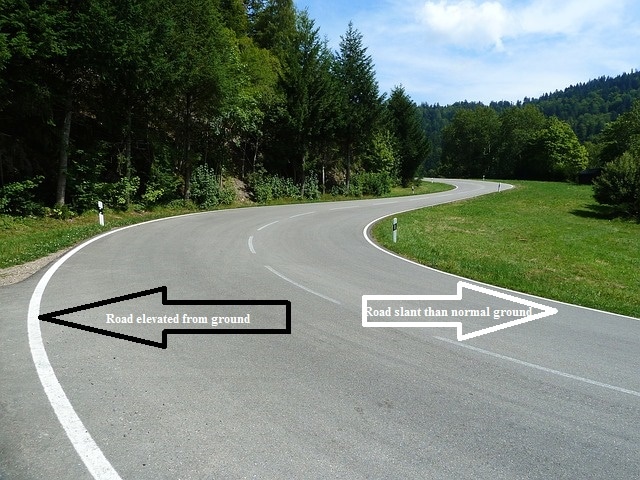Physics is a subject with knowledge about the physical stuff around us.
It is one of the hardest to study as it needs good brain work to learn and understand.
Some people like this subject a lot as they can understand it.
But those who do not understand it will find it boring.
Even it might be a nightmare if they are forced to study. They may even try to opt-out of the subject to escape from studying it.
But, it is worthwhile to remember that many brilliant minds devoted their entire lives to physics.
Some of them include great scientists Isaac Newton, Einstein, Galileo, Stephen hawking, etc.
So it is really worth taking up physics for study. But how to study physics easily is mentioned below.
How to learn physics
First of all, it is important to have a good physics textbook.
Without a good book, it will be confusing to study from class notes and other internet resources.
Also, having a book will help you remember the topics with the page images.
Memory is better if one follows the same physics book to read again and again.
One can study physics starting from school. It is the best time to tune your mind to the basic concepts of science.
1. Keep it natural
- The first and foremost requirement to read physics is to compare the theory with external methods around.
Like for example, there is a concept of centripetal force and centrifugal force.
- These are the types of forces that occur on the body of moving objects around the curvature.
- It is a way to explain how force acts on an object moving in a circular path.
- Centrifugal is a force that pushes objects out of the circular path.
- While the centripetal force is one that acts opposite, i.e., it keeps the object in a circular path.
The examples given to understand will be a road curvature, as seen above.
- The road is sloped towards the inner curvature. At the same time, it is elevated towards greater or outer curvature.
- This is because when a vehicle moves on it at high speed, there is a centrifugal force from the center towards the outer curvature.
- The vehicle can be easily displaced off the road leading to accidents.
- So to minimize this centrifugal force, the road is elevated to produce an equivalent centripetal force on the moving vehicle.
- Thus accidents can be minimized.
This can also be seen more clearly in the racing of bikes as below.
- Here the riders are bending towards the inner curvature to minimize the centrifugal force further.
- Or else they have to take a long curve which will waste their time in the race covering longer path on the curve.
Similarly, we have examples like butter getting isolated when milk or curd is churned.
Even if you are revolving a long key chain with loads of keys at a tip, then you can feel the hand is being pulled off, and you need to control your hand by force while revolving the chain.
The force exerted to keep the chain from being thrown away during a turn is centripetal force and the force which is trying to throw off the chain is centrifugal force.
As such, physics can be understood better by the imagination of events, comparison with external objects, mathematical derivations, etc.
2. Know the fundamentals
Physics mostly relies on fundamental things to explain nonfundamental things.
- For example, distance and time are fundamental and directly measurable properties.
- But velocity can be explained only by taking distance and time into consideration.
Next, energy or work is a fundamental property.
- And power is explained as energy or work done per unit time.
3. Know the derivations
- Physics gets some concepts by some derivations using predefined formulas or concepts, for example.
- The geo-targeting tries to say at what height from the earth a body can stay still and keep rotating with the earth’s pace at the point of fixation in the space.
4. Strength of basic concepts
- For understanding the derivations, one needs to go back to primary physical concepts like gravitational acceleration, a radius of curvature, velocity, time, etc.
- If you know these basic concepts, you will never find it hard to understand even the most complex problems or theories.
5. Application-based study.
- In physics, one may encounter some phenomenon where the concepts of physics are applied for human benefits.
- This is mostly seen in technology like rocker science, signaling systems, power supply, hydraulics, SONAR.
- These applications mostly involve physical laws with some chemistry knowledge.
- So having sound knowledge of chemistry helps in an easy understanding of these applications.
Ex: Atomic energy, protons, neutrons, electrons, etc.
- Reading physics involves the use of mathematics here and there.
- So if one has an aversion to maths, he cannot move ahead in physics in those areas.
- Hence, trying to overcome the weakness is needed there.
How to study physics for exams
Physics cannot be studied just before the exam.
It needs better exposure and understanding of the subject.
So, for studying physics, one has to attend the classes for easy understanding of the subject and principles.
Once you have understood, then you can think of preparing for the exam following the tips mentioned below
1. Have your notes and textbook for preparation
- The command on the subject relies mostly on memory besides understanding it.
- So using your books or texts helps recall the said page or diagram when a question is posed in the exam.
2. Try to cover most topics using a diagrammatic representation
- Most concepts like simple harmonic motion, levers, thermocouples, the law of optics, and other need diagrams to understand.
- Having a diagram for the concept during study help you memorize the diagram.
- This memorization of a diagram is easy and helps answer the remaining theory with ease.
So just before going to the exam, you just need to see the diagrams keenly once.
3. Practice derivations
- Derivations like the laws of motion, geostationary orbit are easy to understand but hard to reproduce in the exam.
- So practice the derivation twice or thrice referring to notes or text.
- The trick is when you are trying to remember the derivations; emphasize those points or steps that take a complete twist to bring to the solution.
- These twists in the derivation, if not remembered, will make it hard to complete in the exam.
4. Solving problems.
- There can be problem-solving questions in the exams. So, try to solve a few problems for each topic, preferably unknown to you before.
- When a problem is asked, try to understand well by scribbling a picture if required on the rough paper.
- Once you understand the question, you can think of what formulas to apply to get the solution.
- Understanding the question is the key and is very important.
For instance, if there is a mention of the term “unit,” it means it is single or one.
If there is mention of “vector” means, there is a direction.
5. Use visual videos or representation
If you feel it is tough to understand a concept, try to go through videos on YouTube or elsewhere, as video representation might help for better understanding.
6. Always give it a try
Most of us, especially in physics and chemistry, give up if the topic seems complicated.
But if we try once or twice, it gets easier. So always try to solve the problems in physics.



it was helpful thanks
thank you so much. 🙂